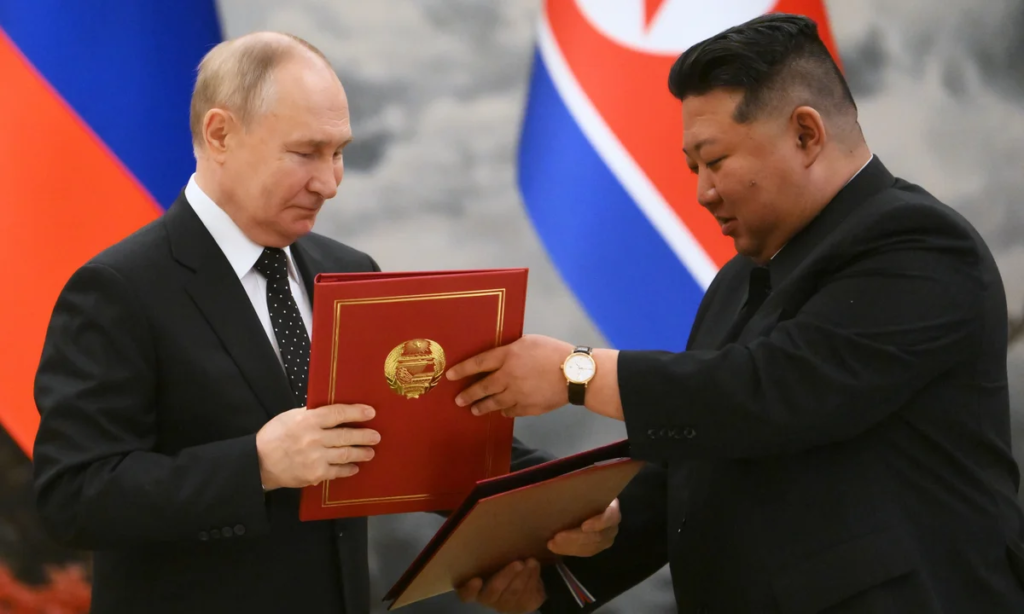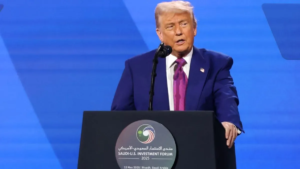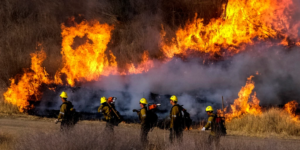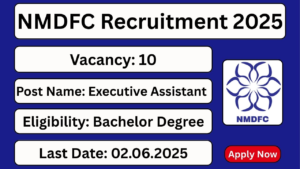Strengthening Alliances: The Implications of the Russia-North Korea Mutual Defense Pact
In a significant geopolitical development, Russian President Vladimir Putin has signed a mutual defense pact with North Korea, formalizing a strategic partnership that has far-reaching implications for global security dynamics. This essay explores the motivations behind this alliance, its potential impact on international relations, and the broader context within which this pact has been established.

Historical Context and Motivations
The relationship between Russia and North Korea has deep historical roots, dating back to the Cold War era when the Soviet Union was a key ally of North Korea. The dissolution of the Soviet Union in 1991 led to a period of reduced engagement, but recent years have seen a revival of ties, driven by mutual strategic interests. For Russia, the pact represents an opportunity to bolster its influence in East Asia and counterbalance the United States and its allies. North Korea, on the other hand, gains a powerful ally that can provide military and economic support in the face of international sanctions and diplomatic isolation.
Strategic Implications
The mutual defense pact stipulates that both nations will come to each other’s aid in the event of an armed attack. This provision significantly alters the security landscape in East Asia, where tensions are already high due to North Korea’s nuclear ambitions and territorial disputes in the South China Sea. The pact could embolden North Korea to take a more aggressive stance, knowing it has Russia’s backing. Conversely, it may also serve as a deterrent to potential aggressors, thereby stabilizing the region in the short term.
Impact on Global Politics
The signing of this pact is likely to exacerbate existing tensions between Russia and Western nations, particularly the United States. It comes at a time when Russia is already under intense scrutiny for its actions in Ukraine and its alleged interference in various global political processes. The alliance with North Korea, a nation widely regarded as a pariah state, further isolates Russia from the international community. However, it also signals Russia’s intent to forge new alliances and challenge the existing world order.
Economic and Military Dimensions
Economically, the pact could lead to increased trade and investment between the two countries, providing North Korea with much-needed resources and technology. Militarily, joint exercises and the sharing of intelligence and technology could enhance the capabilities of both nations. This cooperation might include the transfer of advanced weaponry and military technology, which could alter the balance of power in the region.
The mutual defense pact between Russia and North Korea is a strategic maneuver that reflects the shifting alliances and power dynamics of the 21st century. While it strengthens the military and economic ties between the two nations, it also raises concerns about regional stability and global security. As the international community grapples with the implications of this alliance, it is clear that the geopolitical landscape is becoming increasingly complex and unpredictable.










